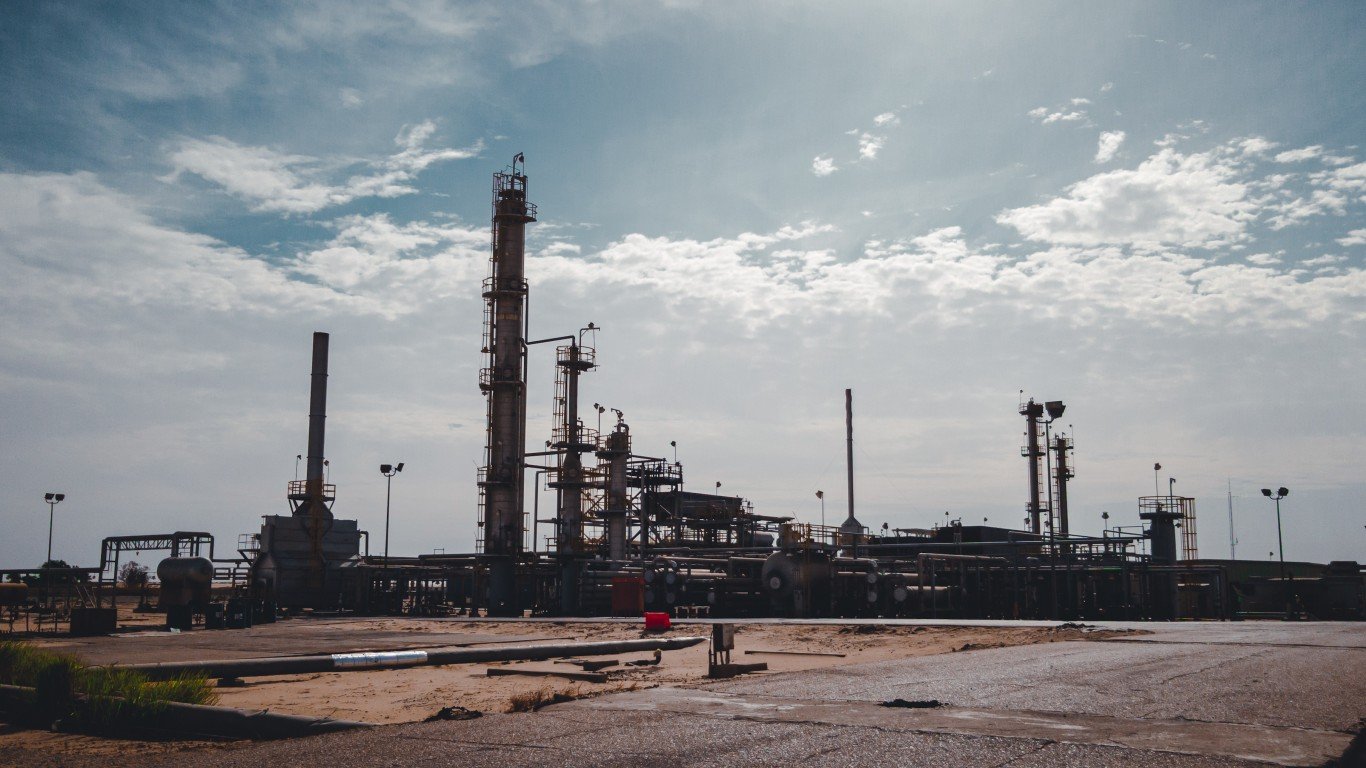
22. Libya
> Catastrophic ecological threats: Two: Natural Disasters; Population;
> Global peace index, 2022 (1-5, most to least peaceful): 2.467 – #151 of 163 countries
> GDP per capita, 2021: $6,018 – #76 highest of 163 countries
> Human development index: 0.7 – #104 of 191 countries
> Population, July 2021 to 2050: 6.7 million to 8.5 million – 26.8% growth
Although Libya also holds the largest oil reserves in Africa, the country’s frequent floods have hampered its progress. According to the Borgen Project, an anti-poverty initiative, Al-Bayda, Libya, was struck by significant flooding in 2020 that cut off electricity and damaged properties. That followed extreme floods in the Ghat district and southern Libya in 2019. The organization notes that “areas prone to disaster are significantly limited in their progression and development when devastation is so frequent.”
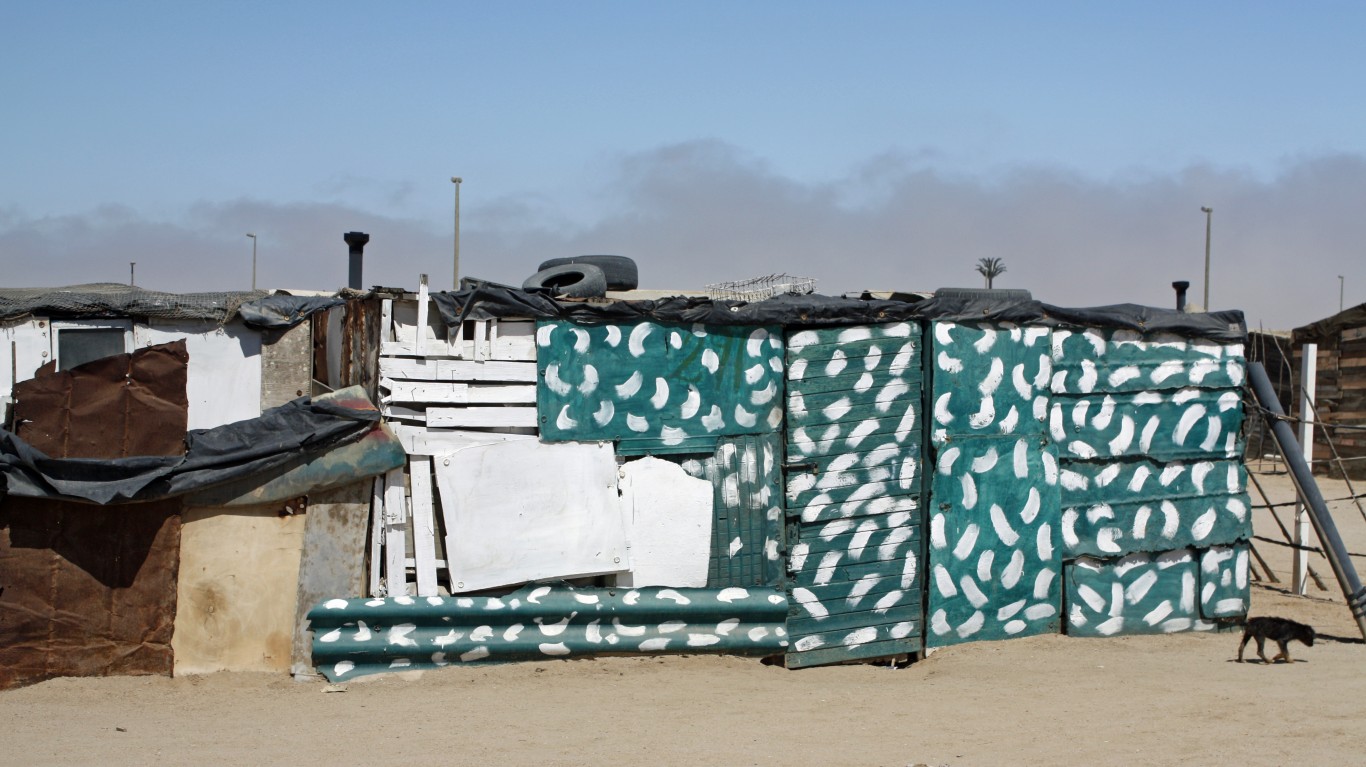
21. Zimbabwe
> Catastrophic ecological threats: Three: Food Security; Population; Water Risk
> Global peace index, 2022 (1-5, most to least peaceful): 2.422 – #127 of 163 countries
> GDP per capita, 2021: $1,737 – #41 lowest of 163 countries
> Human development index: 0.6 – #146 of 191 countries
> Population, July 2021 to 2050: 16.0 million to 26.4 million – 65.3% growth
According to the ETR, Zimbabwe is most at risk for food insecurity. More than 60% of its food imports are from countries riven by conflicts. Moreover, Zimbabwe’s food crisis is exacerbated by frequent dry spells, including a severe drought in the 2018-19 harvest season, USAID reports.
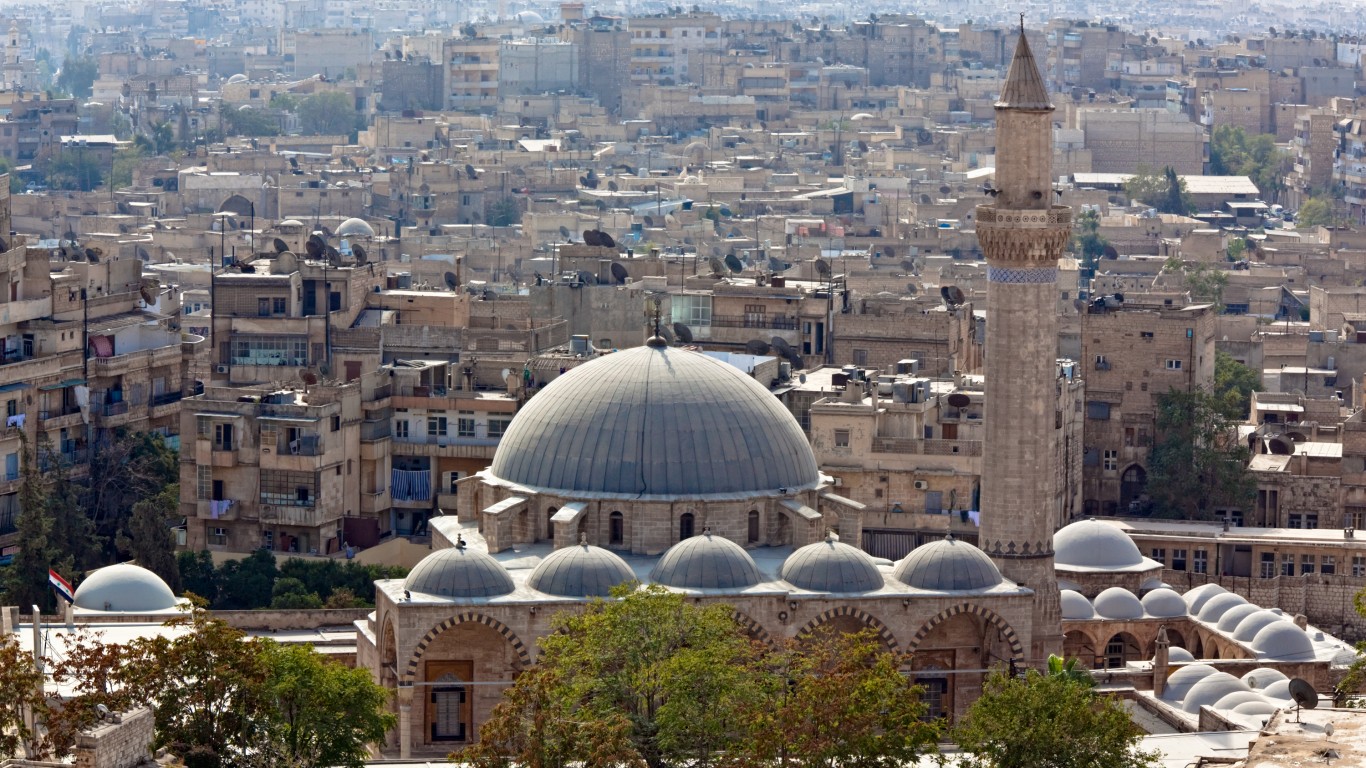
20. Syria
> Catastrophic ecological threats: Three: Food Security; Natural Disasters; Population;
> Global peace index, 2022 (1-5, most to least peaceful): 2.634 – #161 of 163 countries
> GDP per capita, 2018: $1,266 – #32 lowest of 163 countries
> Human development index: 0.6 – #150 of 191 countries
> Population, July 2021 to 2050: 21.3 million to 38.3 million – 79.6% growth
The COVID-19 pandemic has hit Syria hard and impacted its food security. It was also one of the countries with the steepest declines in food security, along with Colombia, Ethiopia, and Mozambique. The civil war in Syria, which started in 2011, is ongoing, with many attributing as contributing factors a long drought and dust storms ahead of the conflict that devastated its agriculture, almost halving the total output of cereal production in the country. The country’s peace index is third lowest.
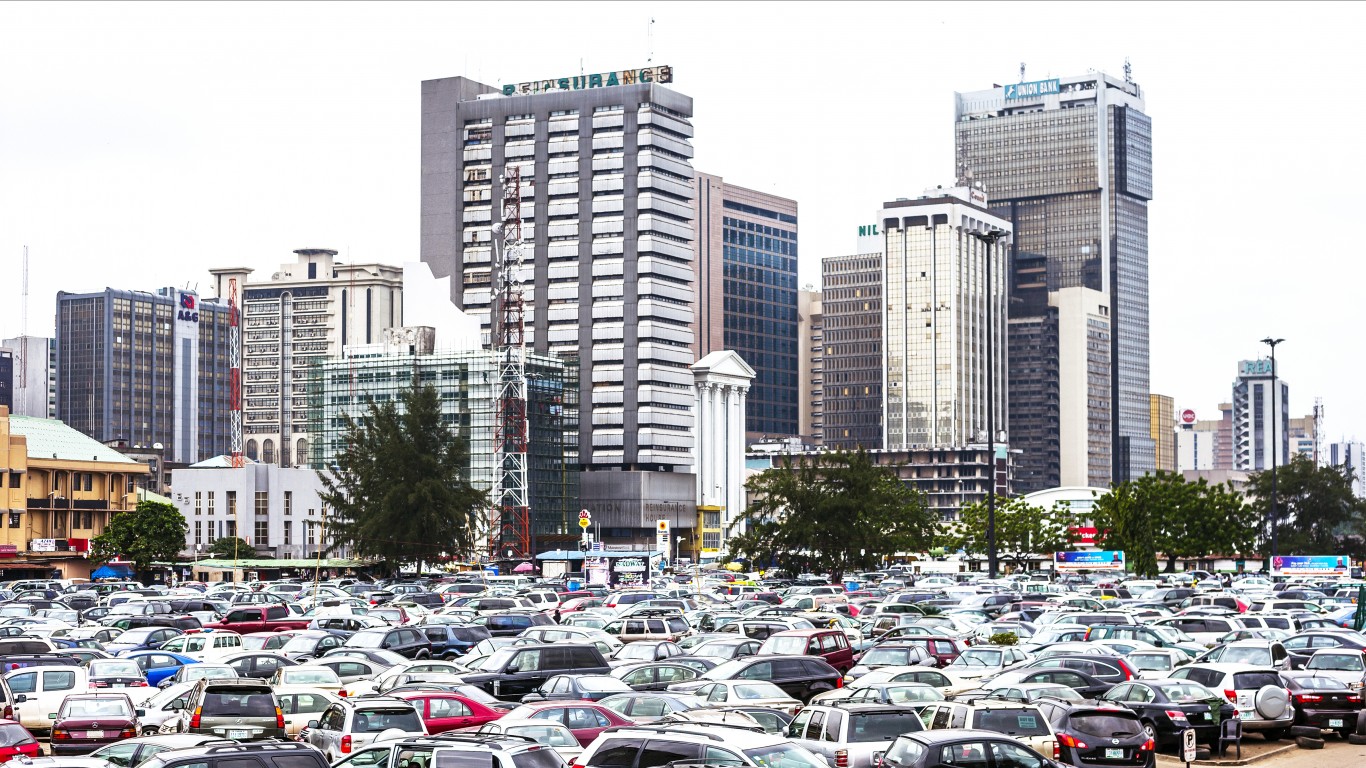
19. Nigeria
> Catastrophic ecological threats: Three: Food Security; Population; Water Risk
> Global peace index, 2022 (1-5, most to least peaceful): 2.581 – #143 of 163 countries
> GDP per capita, 2021: $2,085 – #45 lowest of 163 countries
> Human development index: 0.5 – #163 of 191 countries
> Population, July 2021 to 2050: 213.4 million to 377.5 million – 76.9% growth
In an interesting development for the African nation, Nigeria signed a military cooperation agreement with Russia last year. According to the ETR, Russia has increased its weapons sales to African countries, which accounted for 18% of its arms exports between 2016 and 2020. Nigeria is among the countries that experienced an increase in the number of natural disasters since 1981. It is also among the 14 hotspot countries that will face the most increase in water stress, and it is expected to have at least one water-related conflict by 1980.
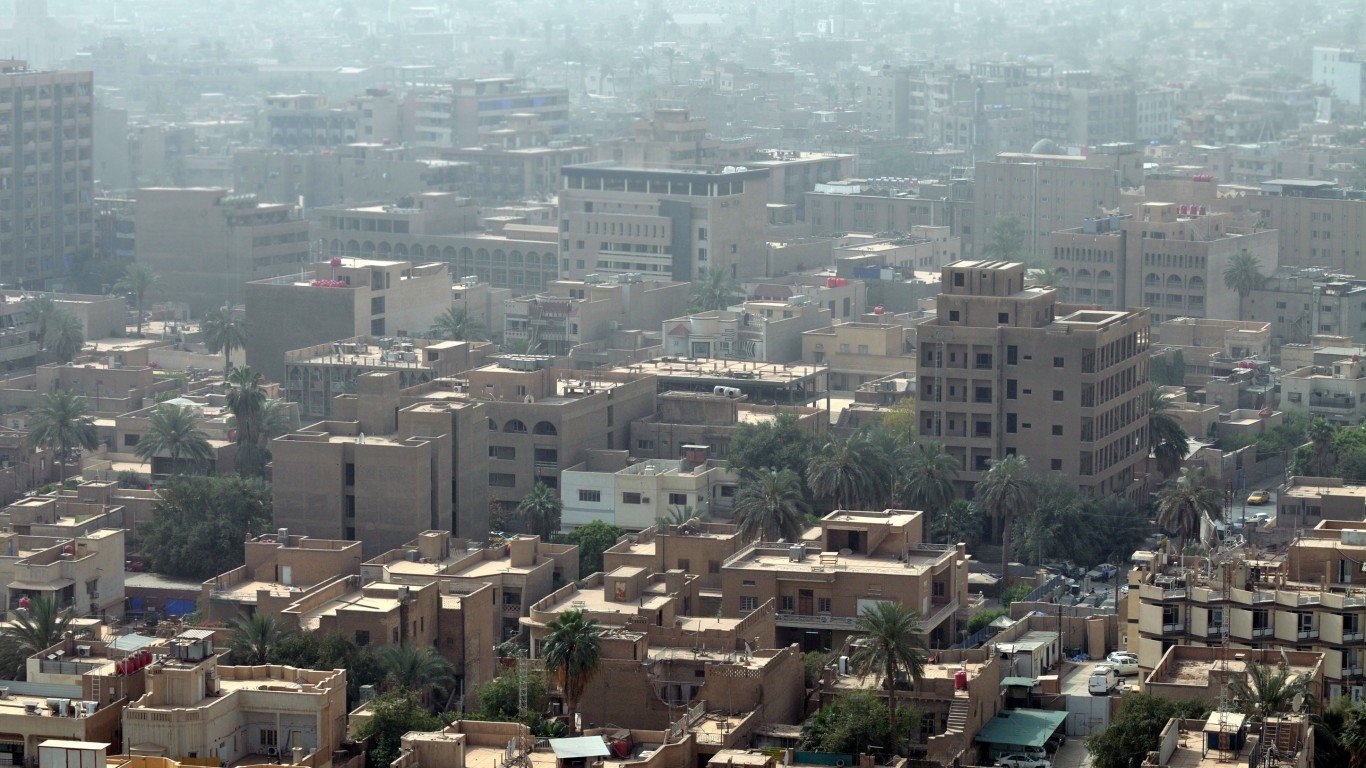
18. Iraq
> Catastrophic ecological threats: Three: Natural Disasters; Population; Water Risk
> Global peace index, 2022 (1-5, most to least peaceful): 3.085 – #157 of 163 countries
> GDP per capita, 2021: $5,048 – #81 lowest of 163 countries
> Human development index: 0.7 – #121 of 191 countries
> Population, July 2021 to 2050: 43.5 million to 74.5 million – 71.2% growth
Conflicts over water is an ongoing concern in the Middle East/North Africa region. Iraq, Turkey, and Syria are all competing for water resources in the Euphrates-Tigris Basin. The report projects Iraq could have 25 more water-related conflicts by 2040 as the country will face some of the greatest increase in water stress by that year. The country’s peace index ranks seventh lowest.





